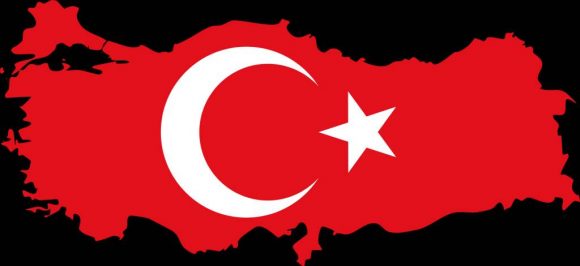By Guy Taylor – The Washington Times
.
Turkey’s military leaders, in the face of rising speculation at home and abroad, took the extraordinary step last week of denying plans for a coup. But with domestic turmoil, a rising terrorist threat, chaos in the region and a history of military interventions in Ankara, the denials haven’t quieted buzz from Washington.
Turkish generals have intervened in the political process four times since 1960 in response to rising political and security tensions, the last time in 1997.
But some see Turkish President Recep Tayyip Erdogan using even the rumors of a military takeover as a way to consolidate his already growing powers and curb political dissent.
Mr. Erdogan’s Justice and Development Party (AKP) is “like a skilled martial arts player,” said Aykan Erdemir, a former opposition member of parliament in Turkey now serving as a senior fellow at the Foundation for Defense of Democracies in Washington.
“They’re very good at turning challenges into advantages, and now that the rumor is out there, they know very well that they can actually profit from it,” Mr. Erdemir said in an interview. “What that means is that the AKP-controlled, pro-government media in Turkey has been devoting substantial time and energy to publicizing these coup rumors — precisely because they know this could alleviate the AKP’s legitimacy deficit.”
While the AKP, in power for more than a dozen years, has faced rising criticism, “given the choice between a military government and the AKP, [voters] will side with the elected government, which is the AKP,” Mr. Erdemir said.
The AKP’s standing is particularly low among young people in Turkey, who say Mr. Erdogan barely survived the fall elections by using government security agents to shutter opposition media and businesses. The president has since been accused of blocking Facebook, YouTube and other social media outlets.
News outlets in Russia also have aired rumors of a coup.
Moscow’s relations with Ankara plummeted after Turkish forces shot down a Russian fighter jet in November near the Syrian border.
An editorial last month on the Kremlin-controlled Sputnik International news website said the Turkish military has been “gradually building up its political influence, thus laying the grounds for a military coup.”
Political tensions are clearly building in Turkey, which has been buffeted by the civil war in neighboring Syria, rising clashes with Kurdish separatist groups, a weak economy and a collapsing tourist market. The hopes of just a decade ago that Turkey could serve as a regional model of a prosperous, democratic Islamic majority state have been largely dashed.
But the coup talk also received a major boost from an unlikely source — a blog posted on the website of the Washington-based conservative American Enterprise Institute.
Michael Rubin, a former Pentagon official and a defense and security analyst at AEI, argued that Mr. Erdogan’s authoritarian tactics of “imprisoning opponents, seizing newspapers left and right, and building palaces at the rate of a mad sultan or aspiring caliph” have grown “out of control.”
If Turkish military officials were to respond with a coup, Mr. Rubin wrote, no one would stop them and Washington would go along with it — just as the Obama administration accepted the Egyptian military’s ouster of a short-lived Muslim Brotherhood government in Cairo three years ago.
Mr. Rubin said in an interview that he was not suggesting a coup may be imminent.
“I was saying that if the Turkish military were to act, the U.S. will back it up — that Erdogan has become such a liability that Washington would not lift a finger to see his restoration to power should anyone decide to oust him Egypt-style.”
The fact that “every Turkish newspaper and even the General Staff of the Turkish Armed Forces felt compelled to comment” on the blog post means “that it obviously touched a nerve,” Mr. Rubin said.
Public denial
The pressure was growing when Turkey’s military, known by the acronym TSK, felt forced to issue a public denial.
“It is inconceivable to think that the TSK would tolerate any illegal phenomenon or action that would digress from the chain of command,” the General Staff said in a March 31 post on its official website, according to Al Monitor.
“We have initiated legal action against those who spread such news and comments, which have absolutely no legal and logical basis and which contravene media ethics.”
Turkish Prime Minister Ahmet Davutoglu said over the weekend that he had personally given his blessing to the General Staff’s statement disavowing a coup, saying the “old Turkey” of military interventions was “far away.”
“I will never accept the Turkish Armed Forces being presented as though it stands outside of our democratic system,” he said, explaining that Gen. Hulusi Akar, Turkey’s chief of general staff, consulted him prior to releasing the statement.
But Mr. Rubin said the pieces were in place to make fears of a coup plausible, even though the top officers and many of the junior officer corps have known only Mr. Erdogan as their civilian commander and the AKP as the party in power.
The Turkish president’s concern, Mr. Rubin said, should be with colonels and brigadier generals who may be against him and discreetly conversing with forces outside Turkey that want the government overthrown.
One Turkish source, who has an extensive network of political contacts in Ankara, told The Washington Times on the condition of anonymity this week that “there is simply no one within the Turkish military at the current moment who could pull off a coup.”
“The AKP has pacified the army over the years. They killed or arrested all the hawkish generals in the mid-2000s,” said the source, who argued that “the only way a military coup could happen would be if there was really clear support from the U.S.”
Washington “would never admit to giving that support unless a coup was a success,” said the source. “My point is that sure, the U.S. might not lift a finger to put Erdogan back in power if a coup suddenly happened, but it’s a fantasy to think the U.S. would actually covertly back a coup to begin with.”
Many analysts, meanwhile, say the whole idea of a coup is outrageous.
“There is absolutely no likelihood of a military coup,” said Mr. Erdemir.
“Turkey closed the chapter for military coups and this is not what Turkey needs at this point,” said Cenk Sidar, a Turkish opposition party member who heads the Washington-based research and strategic advisory firm Sidar Global Advisors.
Mr. Sidar said Mr. Erdogan’s increasing authoritarianism has left many Turks feeling like they are “living in an age of like a civilian coup,” but he argued that the “only way to change the existing government will be by winning elections — through the ballot box.”
But Mr. Rubin, again citing the Egyptian precedent, said Turkish voters have been too willing to bow down and accept Mr. Erdogan’s rule.
“The Turkish people have shown that they are the ‘girlie-men’ of the region,” he told The Times. “The Egyptian people were willing to stand up for their rights, but the Turks were more like those proverbial frogs in slowly boiling water, where they were in denial until it was too late.”
Mr. Sidar and Mr. Erdemir dismissed the characterization.
“What we are actually witnessing is European Union and U.S. appeasement of Erdogan and his authoritarian ways to the great shock of the Turkish public, which is sacrificing a lot vis-a-vis standing up against Erdogan,” said Mr. Erdemir. “There are thousands of academics who are targets of a witch hunt, hundreds of journalists in courts, thousands of citizens being sued for ‘insulting the president,’ and there are demonstrations all around the country. Turkish people are not bowing to Erdogan.”
Added Mr. Sidar: “The Turkish people have not just sat down and done nothing. It’s the job of opposition parties to transform popular movements into political change, and that just hasn’t happened yet.”
Copyright © 2016 The Washington Times, LLC.
Thursday, April 7, 2016






